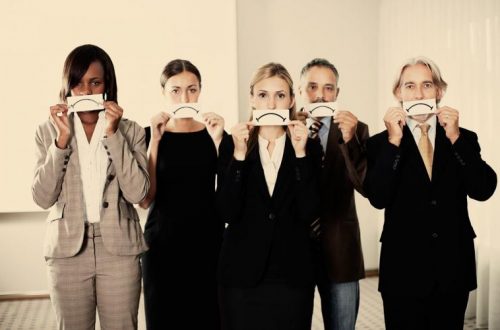“No one wants to die”: The Irony of Steve Jobs’ Death
In a 2005 Commencement Address to the Stanford graduating class Steve Jobs encouraged his young audience to live mindful of their approaching death–because it focuses you on what is truly important. It helps you take risks and follow your heart. He continued, “ No one wants to die. Even people who want to go to heaven don’t want to die to get there. And yet death is the destination we all share. No one has ever escaped it. And that is as it should be, because death is maybe the single best invention of life. It is life’s change agent. It clears out the old to make way for the new. Right now the new is you. And someday, not too long from now, you will gradually become the old and be cleared away. Sorry to be so dramatic, but it’s quite true.”
Commentary on Jobs’ death floods the media, but I don’t hear anyone suggesting that the King of Cool became obsolete and was cleared away to make way for the new. Yet Jobs insists, “Death is life’s change agent–the single best invention of life.” Really? Is death actually the Unverse’s way of sweeping away obsolete humans? Like slipping old Blackberries into the bottom drawers after the new iPhones arrive?
In a 2005 Commencement Address to the Stanford graduating class Steve Jobs encouraged his young audience to live mindful of their approaching death–because it focuses you on what is truly important. It helps you take risks and follow your heart. He continued, “ No one wants to die. Even people who want to go to heaven don’t want to die to get there. And yet death is the destination we all share. No one has ever escaped it. And that is as it should be, because death is maybe the single best invention of life. It is life’s change agent. It clears out the old to make way for the new. Right now the new is you. And someday, not too long from now, you will gradually become the old and be cleared away. Sorry to be so dramatic, but it’s quite true.”
Commentary on Jobs’ death floods the media, but I don’t hear anyone suggesting that the King of Cool became obsolete and was cleared away to make way for the new. Yet Jobs insists, “Death is life’s change agent–the single best invention of life.” Really? Is death actually the Unverse’s way of sweeping away obsolete humans? Like slipping old Blackberries into the bottom drawers after the new iPhones arrive?
From the market analysts to the team at Apple to the legions of fans lined up to buy the next new iThing, who questions that Steve Jobs, at 56, was in any way becoming obsolete? That he didn’t have years of producing more cool stuff ahead of him? Why does modern Western culture value the young over the old? Most societies for most of history have not.
The older artist has a wealth of experience and wisdom that a younger artist may never attain. True, younger artists stand on older artists’ shoulders, but it doesn’t mean the value of the older artists is diminished or that they need to be cleared away. All of us bear the image of a creative God. We are little creators whose lives are infused with dignity and value. Something that precious should last forever. Death is a sinister intruder into a world created for life and love.
Since he was diagnosed with pancreatic cancer in 2004, death has stalked Steve Jobs. In the wake of his death and subsequent media saturation of the iPod launch, the iPhone launch, the iPad launch, we watch the man being “cleared away.” But it’s hard to see his face and body wasting in slo mo and agree that death is “the best invention of life.”
Jesus wept over the horror, suffering and loss of death. The apostle Paul refers to the “sting of death” and calls it an “enemy,” the “last enemy to be finally defeated”(1 Corinthians 15:26). But there is good news: it has been defeated. “Jesus abolished death and brought life and immortality to light through the good news” of his redeeming love (Hebrews 2:9). “By the grace of God he [tasted] death for everyone and through his death he [destroyed] the one who has the power of death, that is the devil, and [delivered] all those who through fear of death were subject to lifelong slavery.” (Hebrews 2:9,14,15)”
Steve Jobs challenged the Stanford grads to see death as a good thing—the universe’s version of a natural upgrade. Ironically, the elegance of his work touches our longings for something eternal–the transcendent value of art and the artist that does not diminish with age. Beauty–our longing for it, our ability to create it—is the signature of a beautiful God pointing us to himself. Also ironic: Steve’s own death pierces us with the deep disruption and loss of death. Far from a gift or an upgrade, death is an evil thing that needs to be overcome with good.
A song writer I dearly love echoes the commencement message of Steve Jobs: “Maybe I can save myself if I…love like a beggar and…need like an infant and…pass each moment like a dying man.” Beautiful lyric…Maybe…
But what, really, can we save ourselves from? Death? From the calamity and ache of separation? From our own selfishness that hurts those we love most?
When Steve’s biographer, Walter Isaacson, asked him why, in the final months of his life, this normally guarded and private person was letting him in so deeply, Jobs replied, “I wanted my kids to know me. I wasn’t always there for them, and I wanted them to know why and to understand what I did.”
Jesus said, “Whoever believes in me will not perish but have everlasting life.” The fruit of my spirit is love, joy and peace. ”The water I offer will become in you a spring of water welling up to eternal life.” And he rose from the dead to display his staggering power to deliver on his promise.
It is true that no one wants to die. Neither do we want to die to our own self-focused way of life.
It is also true that no one has to taste the sting of death. And with a simple request we receive Jesus, his life, and the power to die to self and love well.



One Comment
David Austin
Steve was told about Christ’s Love
it is true “Jesus said, “Whoever believes in me will not perish but have everlasting life.” The fruit of my spirit is love, joy and peace. ”The water I offer will become in you a spring of water welling up to eternal life.” And he rose from the dead to display his staggering power to deliver on his promise. ”
It is too bad that the many times his Christian VP’s told Steve about Christs love that he never turned and embraced it. He knew the truth and his destiny heaven or hell is now sealed in Steve’s choices.